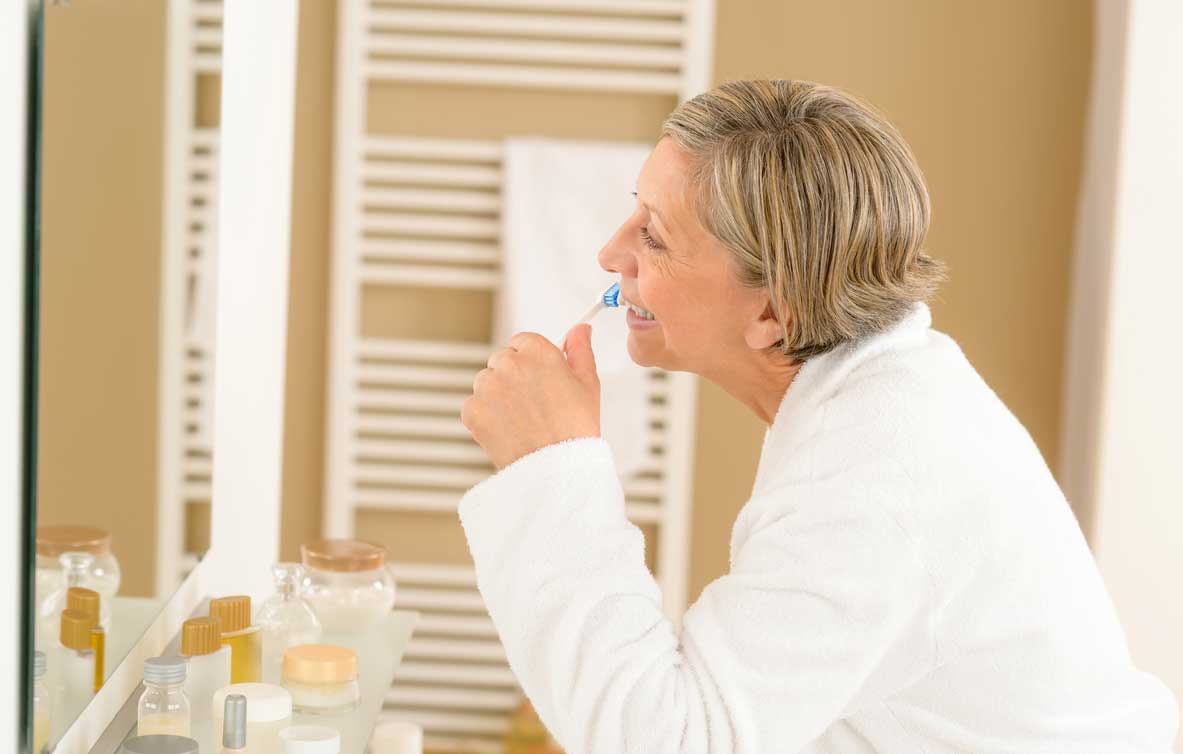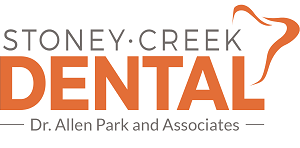
Posted on April 18, 2018
To enjoy a healthy, attractive smile your entire life, importance must be placed on maintaining great oral health.
Yes, brushing and flossing should be constant regardless of your age. But as you get older, a few changes need to be made regarding your oral hygiene.
Wondering how to enjoy great teeth and gums as a senior? Read our tips below to find out!
New Oral Challenges as a Senior
Oral conditions change over our lifetime. As a senior, new oral challenges appear that were not a concern when you were younger. These can include:
Disease: Besides oral cancer, certain diseases can develop as a senior, such as thrush an irregular mouth fungus growth. Gum disease is another concern and can be a result of ineffective oral hygiene habits earlier in life.
Dry Mouth: Although dry mouth can be attributed to the body’s physical changes, it’s also the result of over 400 commonly used medications. Since saliva helps eliminate bacteria and rebuild enamel, dry mouth can increase the risk for oral disease.
Attrition: Think about the years and years of grinding and chewing you’ve put your teeth through! It’s easy to see how a seniors’ tooth enamel can erode, increasing the risk for cavities.
Root Decay: It’s not uncommon for seniors’ gums to regress, leaving the tooth roots exposed and problems to occur. Root decay often accompanies gum disease.
Practicing Great Oral Hygiene throughout Your Lifetime
Regular dental visits continue to be important as you age. Like any other time of your life, great oral hygiene as a senior truly begins with you.
Ensure your teeth and gums stay healthy by:
Modifying Your Brushing Technique: Seniors with arthritis in their hands can complete their oral hygiene routine easier by getting creative with their toothbrush! If you don’t want to invest in an electric toothbrush, make a regular toothbrush easier to hold by wrapping a sponge around the handle.
Increasing Fluoridation: As a senior, it’s important to incorporate more fluoride into your oral health routine. Either use a fluoride toothpaste when brushing or complete a fluoride rinse.
Staying Away from Tobacco: Besides being linked to heart disease, using tobacco products increase the risk of mouth and throat cancer. Plus, the sugar contained in many tobacco formulations can lead to decay.
Eating Healthy: Eating a balanced diet that incorporates whole grains, vegetables and fruits (and is low in saturated fat and sodium) helps not only your oral health but your overall health, too!
Getting More Hydration: If your medication is causing your dry mouth, ask your doctor to prescribe an alternative. If this isn’t possible, stay hydrated by drinking plenty of water, chewing sugar-free gum, using a humidifier in your home and avoiding alcohol.
Using an Antibacterial Mouthwash: Help reduce plaque formation (and avoid gum disease) by incorporating an antibacterial mouthwash when brushing and flossing.
Ask Your Dentist About Additional Oral Hygiene Tips for Seniors
Dentists are the experts when it comes to meeting the unique needs of the senior population.
At Stoney Creek Dental, we genuinely care about each patient’s oral hygiene. Contact us today to learn more about the dentistry services we provide for not only seniors but for all members of the family.
